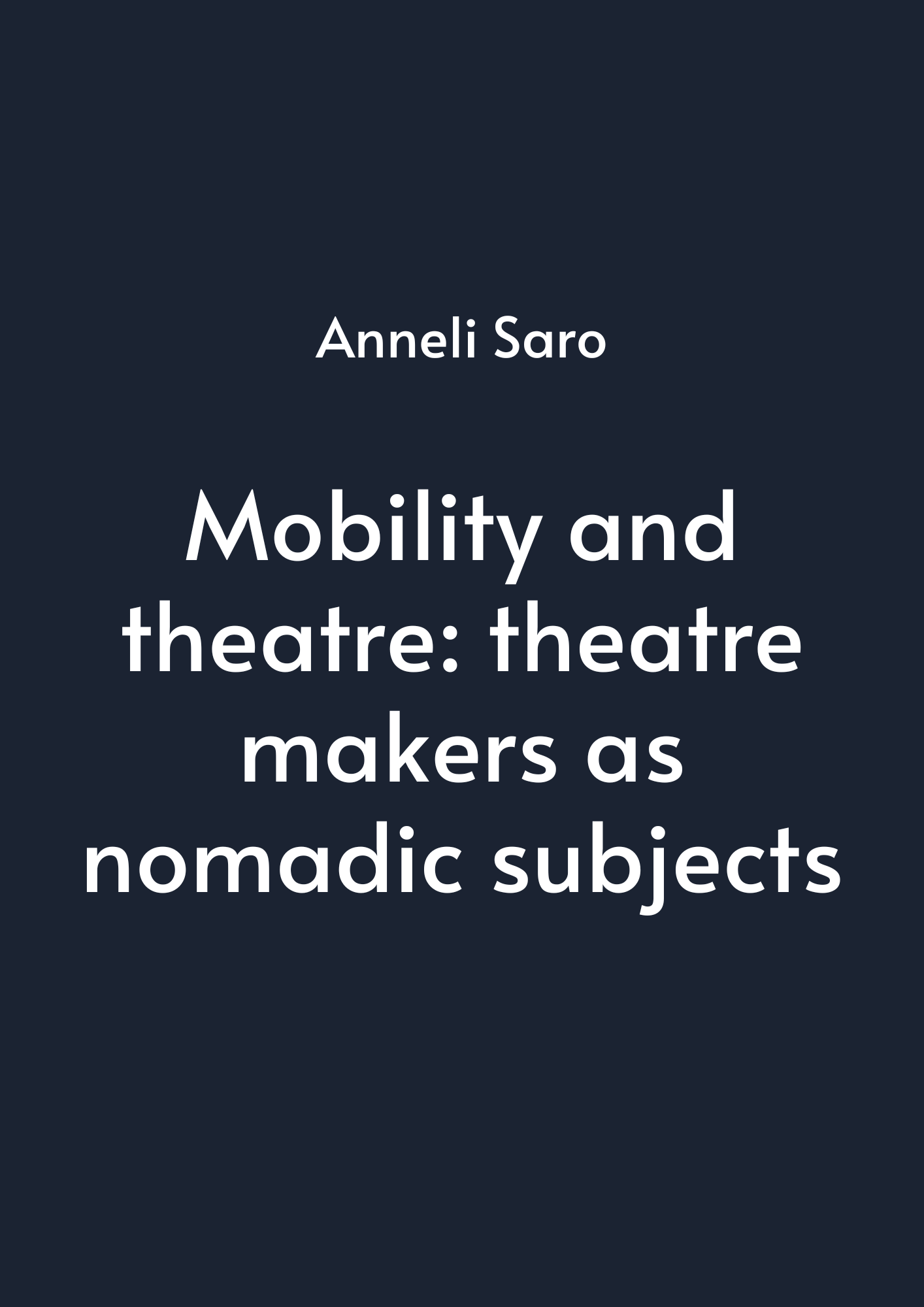Mobility and theatre: theatre makers as nomadic subjects
12.05.2015 17:26

Saro, Anneli 2015. Mobility and theatre: theatre makers as nomadic subjects. – Nordic Theatre Studies, vol. 27, no. 1. https://tidsskrift.dk/nts/article/view/24242/21245
Abstract. This article discusses the pros and cons of theatrical mobility, investigating situations where theatre is breaking its traditional practices of being local and urban by becoming mobile, international and rural. The main features in this context are guest performances at home and abroad, the importation of guest directors, performers, designers et cetera, and finally, site-specific and open-air productions. The structure of the analysis is based on these features, partly derived from the historical development of theatre but partly also from the aim of contrary thinking, insisting that contrary to the widespread assumption of nomadism as something indigenous or postmodern, nomadic attitudes can also be detected in quite traditional forms of theatre making and living. While touring at home and abroad provides opportunities for theatre makers to practice nomadic life style, summer theatre creates an opportunity for spectators to experience nomadism in more local spaces. The above mentioned features are analysed in the context of Estonian theatre, drawing occasional parallels with the neighbouring country of Finland. Each section goes through three periods of Estonian theatre history; 1) the period before the Second World War when theatres belonged to societies; 2) the period between 1940 and 1991 when Estonia was a part of the Soviet Union and all theatrical activities were subject to state control; 3) the period of independence and globalization. Since each period had a different imprint on theatrical mobility, the phenomenon will be investigated in relation to the political, social and cultural contexts, using Bruno Latour’s concept of actor-network-theory as a methodological tool.
Keywords. Estonian theatre, mobility, touring, internationalisation, summer theatre, nomadism, actor-network-theory.